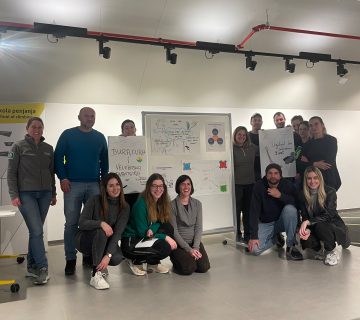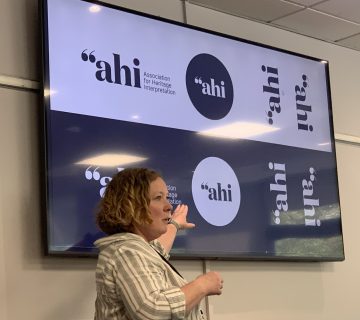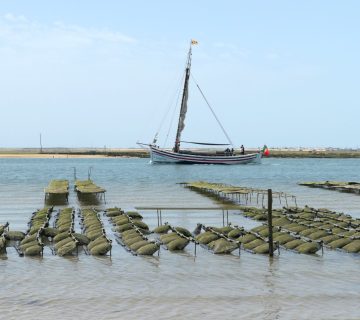A recent structured dialogue with the European Commission on the role of culture in including refugees and migrants highlighted issues with simplistic segmentations of groups and promoted an integrative approach that creates shared space.
On 14 and 15 July 2016, I represented ICOMOS’ International Scientific Committee on Interpretation and Presentation of Cultural Heritage Sites (ICIP) at the Voices of Culture Structured Dialogue between the European Commission and the cultural sector in Brussels. The topic was the role of culture in the inclusion of refugees and migrants. This topic had been chosen by Europe’s civic society in response to the current refugee crisis and as such reflects the desire for cultural actors to contribute to social challenges in our contemporary societies.
Over 200 organisations from across Europe had applied to participate. Of these, thirty organisations were invited, of which the majority were from the arts. ICOMOS ICIP was the only interpretation-specific organisation, and the only representative from the heritage (as opposed to the museum) sector. This is insofar interesting as it suggests that the role of heritage in integrating refugees and migrants may have less profile. The separation of culture and nature was also noticeable, as there were no participants from the natural heritage sector.
The dialogue began with a very helpful examination of terms. Based on participants’ own practice of and experience with working with refugees and migrants, the terms ‘participation’ and ‘integration’ were preferred to ‘inclusion’, as long as they were understood as two-way processes that acknowledge cultural expression as a fundamental human right. This consequently also requires that the necessary conditions for cultural expression are created through policy and practice. An example mentioned was that of a ‘third space’, in which identities are collaboratively created by diverse groups of ‘natives’, refugees, and migrants. This integrative approach, which mixes rather than singles out groups, and fosters shared identities rather than reinforcing separate ones, emerged repeatedly as good practice on such varied discussion points as success factors for projects and influencing policy.
The terms ‘refugee’ and ‘migrant’ were also critically examined. The transitory nature of (legal) status was highlighted, and with it the changing needs and requirements of the people concerned. The group was particularly cautious about applying the term ‘migrant’ indiscriminately, noting for example the difference between forced and voluntary migration. Uncertainty about the future was identified as a key challenge both for people and projects, as well as society at large. The consensus was that people must be given an opportunity to participate independent of likely duration of stay.
The group noted that the above required flexibility of cultural projects, without knowing in advance the outcomes. Success can therefore not be evaluated on the basis of predetermined indicators, but must emerge from participants’ feedback.
Overall, the group saw culture as a universally shared human trait with transnational similarities that are able to facilitate contact and exchange in a safe environment. Projects were noted for their ability to make visible need and bring together decision-makers and those impacted by policies. This gives culture a key role in influencing policy.
Recommendations to the European Commission are now being collated and will be discussed with Commissioners in September.
Nicole Deufel is Vice President for Policy for ICOMOS ICIP. She holds a PhD in Heritage Studies and is currently a heritage consultant in the UK. You can contact Nicole at nicole@nicoledeufel.com.
Photo by: Andrea Bonetti, www.andreabonetti.com
To cite this article:
Deufel, N. (2016) ‘Can culture help to integrate refugees and migrants?’. In Interpret Europe Newsletter 2-2016, 16
Available online:
https://www.interpret-europe.net/fileadmin/Documents/publications/Newsletters/ie-newsletter_2016-2_summer.pdf




